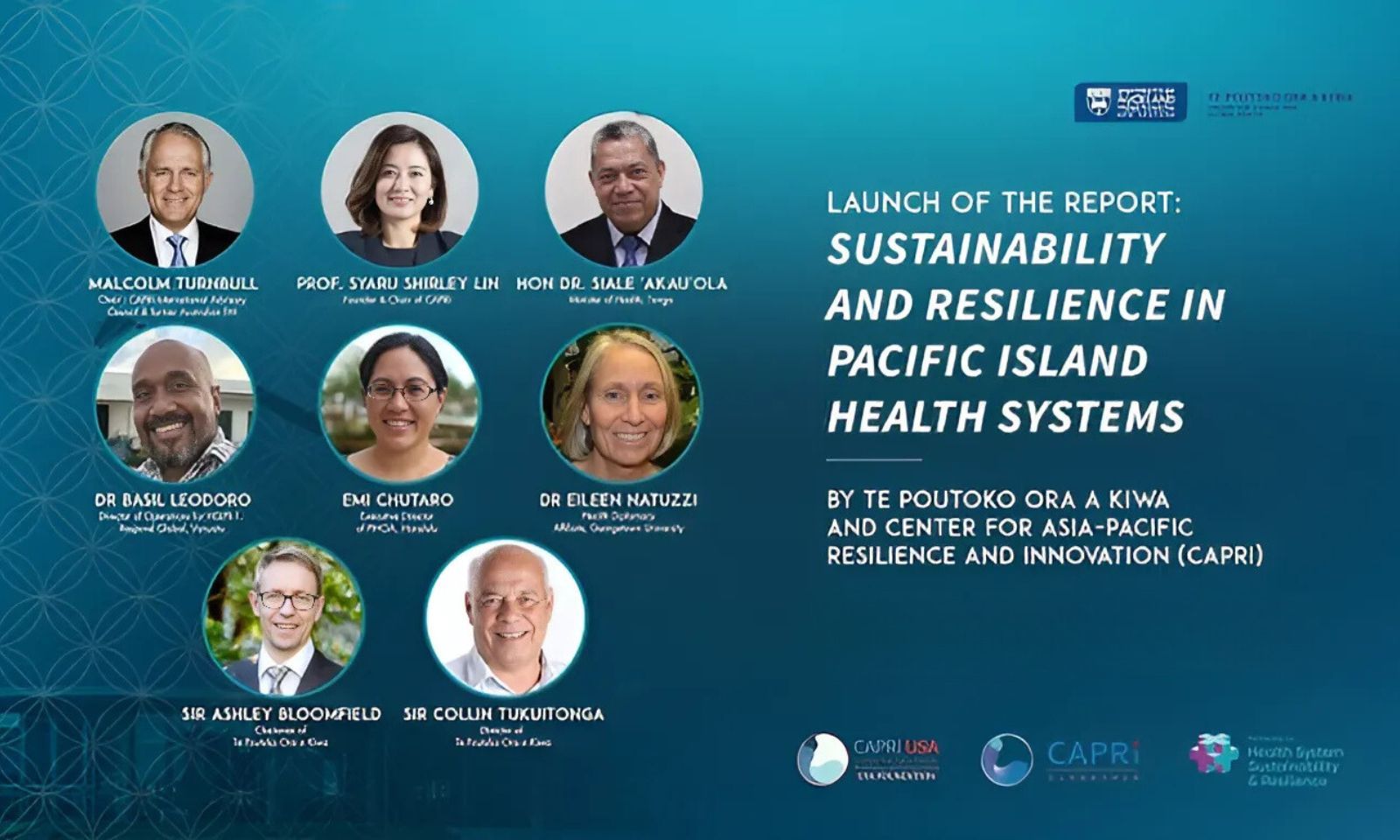

Immunisation Day for the Selima community in Vanuatu.
Photo/WHO/Yoshi Shimizu
Health report reveals challenges in Pacific systems
Key findings show resilience despite issues of underfunding, staff shortages, and climate change impacts in the region.


Immigration reassesses toddler's declined visa request as Children's Commissioner steps in



Fiji’s former Prime Minister and police chief charged with inciting mutiny

Immigration reassesses toddler's declined visa request as Children's Commissioner steps in


A Pacific health leader says underfunding, staffing shortages and the impacts of climate change are significant challenges faced by the sector in the region.
Sir Dr Collin Tukuitonga, Director of Te Poutoko Ora A Kiwa (Centre for Pacific and Global Health) at Auckland University, has highlighted several key issues facing healthcare systems in the island nations.
His comments follow the recent release of the Sustainability and Resilience in Pacific Island Health Systems Report which was conducted in Vanuatu, Tonga, and the Marshall Islands.
Tukuitonga, a co-author of the report, says key findings show that despite regional coordination and Official Development Assistance (ODA) have facilitated progress in the Pacific, glaring gaps in the systems impede advances in health outcomes.
However, in an interview with PMN Niue host Faama Viliamu, Tukuitonga expressed admiration for the resilience displayed by Pacific health systems in overcoming these difficulties.
“We did reports on three of the islands, the Kingdom of Tonga, the Republic of Vanuatu, and the Republic of the Marshall Islands - looking at how health services are funded, what the challenges are, whether they have enough trained doctors and nurses, and whether they have enough medicines.

Sir Dr Collin Tukuitonga says underfunding, staffing shortages and the impact of climate change are faced by the sector in the region. Photo/University of Auckland
“I guess the things that stood out for me was how well the islands do in terms of delivering services for actually a very small amount of money.’’
The health report focuses on seven critical areas: population health, environmental sustainability, workforce dynamics, technology and medicines, service delivery, financial structures, and governance.
It also provides valuable insights for potential improvements.
Tukuitonga pointed out that a lack of funding has led to poor healthcare delivery across the board.
According to the report, many Pacific Islands Countries and Territories (PICTs) allocate less than five per cent of their GDP to healthcare, which restricts their ability to provide essential health services.
As a result, many PICTs rely heavily on official development assistance and foreign aid.

A Pacific health talanoa session in Christchurch. Photo/Facebook
“Underfunding in the islands is a serious problem. And so they're having difficulty delivering services, recruiting doctors and nurses, buying medicines, those kinds of things.’’
The report also reveals that the retention rate of healthcare professionals in the region is alarmingly low.
It identifies two main factors contributing to this issue: “Push” factors (such as low compensation and heavy workloads) and “Pull” factors (including better pay and working conditions abroad).
The report also discusses retention strategies, such as bonding students to government agencies.
“The other big issue is the loss of doctors and nurses to other countries, you know, Australia, New Zealand, and the United States.
“So all of the islands struggle to keep their doctors and nurses, and this is a challenge that no one's really been able to figure out because doctors and nurses will go to places where working conditions and pay and so on are better.’’
Climate change poses another significant challenge to health services in the Pacific Islands, despite their minimal contribution to global greenhouse gas emissions.

Authors of the Sustainability and Resilience in Pacific Island Health Systems report. Photo/University of Auckland
These regions are increasingly affected by severe weather events, rising sea levels, and warmer oceans, impacting both physical health and mental wellbeing.
Despite these challenges, the resilience and spirit of these island communities serve as a source of hope for improved health outcomes.
“About two-thirds of hospitals and islands are located near the sea, the coast, and a river. In other words, at risk when there is a severe weather event, and again, these things need to be looked at.”
Tukuitonga says research and findings like these are vital for developing frameworks that meet the needs of the Pacific region.
The report recommends a collaborative effort among regional, national, and international governing bodies to ensure that these frameworks are efficient and beneficial.
Watch Sir Collin Tukuitonga's full interview here.